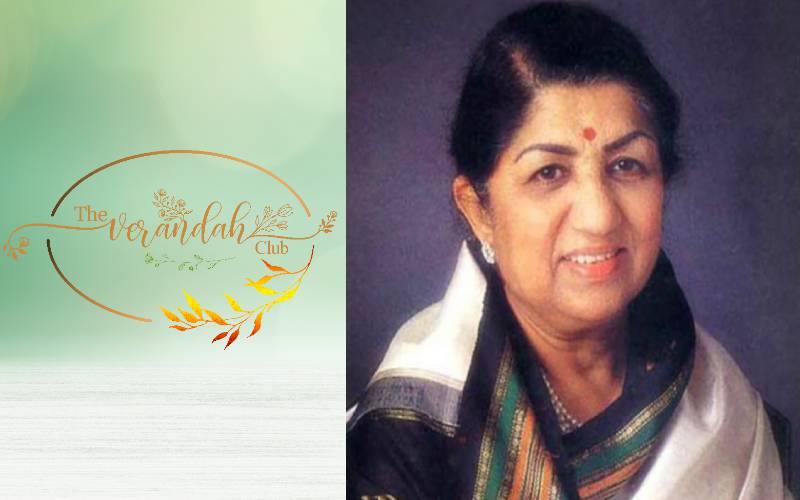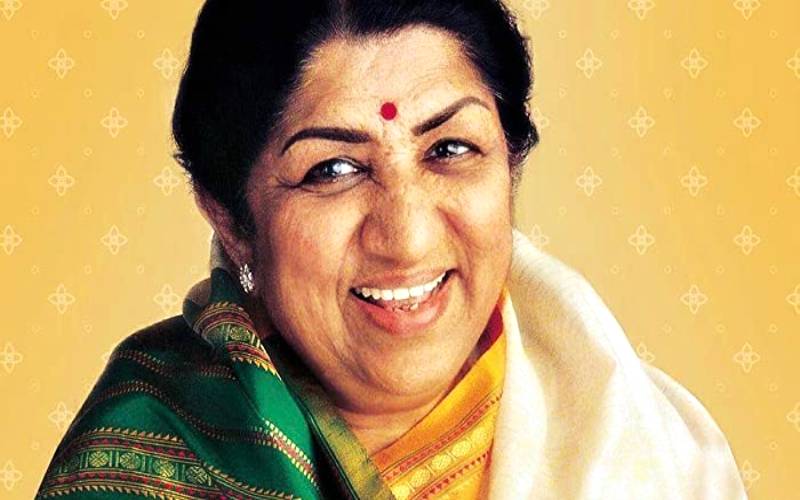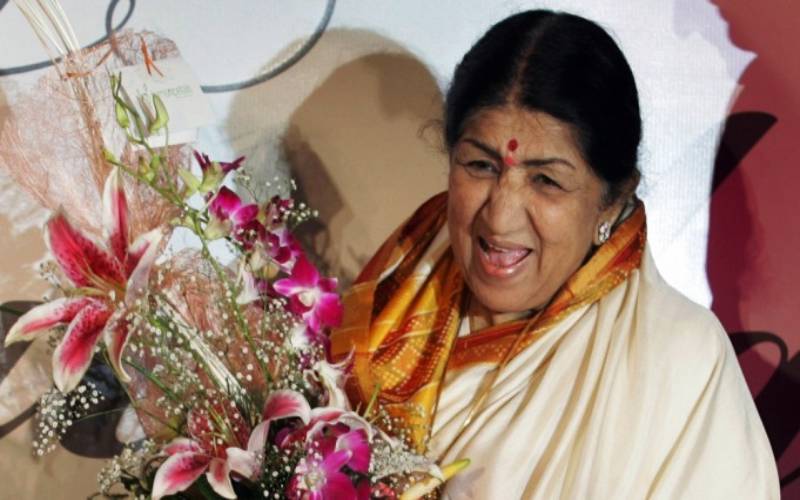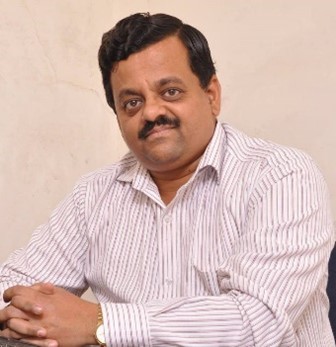
The year was 1948. The doyen of the Indian movie industry Sashadhar Mukherjee of the legendary Filmistan banner was looking for a singer for his movie Shaheed. Music director Ghulam Haider suggested the voice of a new upcoming singer called Lata Mangeshkar. Mukherjee contemptuously dismissed the suggestion saying, “Her voice is too thin, not suitable for playback singing.”
Those were the days of singers like Shamshad Begum and Amirbai Karnataki who were known for their full-throated vocals. A soft and dulcet voice like that of Lata seemed out of bound. A rejection from such a big producer would have demotivated any other upcoming singer but not Lata. She had a hunger to succeed. The hunger came from the hungry mouths at home she needed to feed.
At the tender age of 13, Lata lost her illustrious father Pandit Deenananth Mangeshkar. It was now up to Lata to take care of her mother, brother, and three sisters. She sacrificed her life for her family taking up acting and singing in Marathi films first followed by Hindi films. She then worked hard to prove herself overcoming challenges from the existing singers and very quickly moved to the top.
It was Ghulam Haider who gave her the first big opportunity with the song ‘Dil Mera Toda, Mujhe Kahin Ke Na Choda’ in Majboor (1948). Lata has always referred to Haider as her mentor. It was Haider who took Sashadhar Mukherjee’s words as a challenge and told Lata to prove him wrong. Ironically, in Sashadhar Mukherjee’s hit movie 'Munimji' (1955), Lata sang six songs proving her talent to the whole world.
Her first hit was courtesy Khemchand Prakash (The same composer who gave the first break to Kishore Kumar). The song was ‘Aayega Aanewala’ picturised on the alluring Madhubala in Mahal (1949). The diva of playback singing Noor Jehan had chosen Pakistan after partition. This created a vacuum and Lata very quickly managed to fill this gap.
Lata’s hit songs in 'Andaz' (1949) impressed Raj Kapoor who was getting ready to launch a big movie 'Barsaat' (1949). He chose Lata as the female voice, while he chose Mukesh to sing for him. He worked with new music composers Shankar-Jaikishan for the movie. The team created musical history with 'Barsaat.' They continued to collaborate to create music history through movies like 'Awara' (1951), 'Shree 420' (1955), 'Jis Desh Me Ganga Behti Hain' (1960), and 'Sangam' (1964).

Shankar-Jaikishan worked with Lata for other banners. It was not just SJ but every music composer from Naushad to Anil Biswas, and S D Burman to Madan Mohan whose first choice was Lata. She towered like a colossus over the music sphere. Composers would create songs keeping her in mind. There was no one to challenge her, such was her musical genius.
The perfection in her signing and her dedication was what made her a favourite among music directors and film makers. Other than her own sister Asha, no one else could come close to her. The great Geeta Dutt ruined her career due to personal reasons leaving the field clear for Lata to dominate Bollywood. The only one who could come near Lata was Anuradha Paudwal. But that was late in the 90s when Lata had reduced her singing and it happened only due to the backing of Gulshan Kumar.
There are allegations that she tried to stifle competition. But in a competitive world, who will not try to maintain an edge over their rivals? Lata denies these allegations and in an interview said that it was she who referred Vani Jairam for the movie Guddi. Singers like Suman Kalyanpur were clones of Lata and even others who came subsequently like Alka Yagnik and Shreya Ghoshal modelled their singing on Lata, such was her greatness.

Today, Bharat Ratna Lata Mangeshkar is no more with us. She has left the earthly world to move on to her final destination. As the nation celebrated Saraswati Pooja on Basant Panchami, the earthly incarnation of Saraswati had prepared to leave for her abode. Lata has been referred to as the Nightingale and the incarnation of Goddess Saraswati. Her remarkable talent is what makes people compare her to the Goddess of music.
People of today’s generation sometimes make snide comments calling her over-rated. This will definitely make the blood of music lovers boil. It is unfortunate that people pass such comments that denigrate a golden voice. They cannot be blamed because they would have only heard later songs sung by her. The songs sung in the 2000s are painful to listen to as they show the age in her voice.
Anyone who dares to doubts her musical talents can listen to the iconic songs she has sung in the 50s, 60s, and 70s. These songs will silence all her detractors. The songs she has sung for Madan Mohan were special. ‘Lag Ja Gale Ki Phir Se’ (Woh Kaun Thi), ‘Tu Jahaan Jahaan Chalega, Mera Saaya Saath Hoga’ (Mera Saaya), ‘Naina Barse Rimjhim Rimjhim’ (Woh Kaun Thi), ‘Woh Bhooli Dastaan’ (Sanjog), and ‘Aap Ki Nazron Ne Samjha’ (Adalat) are songs that are a testament to her genius.

A creative genius like A R Rahman preferred to use her voice even though she was in her late 60s, such was his confidence in her voice quality. From S D Burman to RD Burman and Laxmikant-Pyarelal to Jatin-Lalit, no music director could dream of a movie without her voice. Even Raj Kapoor who had a big fight with her after Sangam had no option but to go back to her for Bobby since he knew it was only her voice that could make the music a hit.
She fought with S D Burman and Mohd. Rafi and had stopped working with them for many years before reuniting. She had a special affection for Mukesh whom she called Bhaiyya. Her strong bonds with Kishore Kumar are well-known and she was the only big singer with whom she has sung on stage (apart from Mukesh).
She had a special relationship with Dilip Kumar. He had criticised her for her strong Marathi accent. That motivated her to learn Urdu and improve her diction. From Mehboob Khan to Raj Kapoor and Dev Anand to Yash Chopra, film makers could not think of making a movie without her songs.
The winner of the Bharat Ratna and countless awards, her personal life was filled with challenges and sadness. She was reportedly in love with Raj Singh Dungarpur but his family opposed the match. She then chose to remain unmarried preferring to take care of her family. Her rifts with sister Asha are well-known. Whatever may be the rivalry, there is no doubt that the two legends had great affection for each other.
How do we remember a legend like Lata? How can we pay homage to her? The words of Gulzar ring in our ears, ‘Naam Gum Jayega, Chehra Badal Jayega, Meri Awaaz Hi Pehchan Hai’. How true are these words! The voice of Lata Mangeshkar is so special that the moment her voice comes on air, anyone can recognize it. Apart from her innumerable movie hits, she has sung many devotional songs that continue to play in many homes even today.
The best way to remember her is to listen to her golden songs that will live forever making Lata ji live in our hearts forever. Here is a selection of some of her greatest songs (in no particular order) that you can listen to countless times and never get bored.
1. Pyar Kiya to Darna Kya (Mughal-e-Azaam, Naushad).
2. Chalte Chalte (Pakeezah, Ghulam Mohammed).
3. Ajeeb Dastaan Hai Ye (Dil Apna Aur Preet Paraiya, Shankar Jaikishan).
4. Ae Dil E Nadaan (Razia Sultan, Khayyam).
5. Raina Beeti Jaiye (Amar Prem, R D Burman).
6. Satyam Shivam Sundaram (Satyam Shivam Sundaram, Laxmikant Pyarelal).
7. Ae Mere Watan Ke Logo (non-film, C Ramachandra).
8. Rasik Balma (Chori Chori, Shankar Jaikishan).
9. Mere Khwabon Me Jo Aaye (Dilwale Dulhaniya Le Jaenge, Jatin Lalit).
10. Piya Tose Naina Lage Re (Guide, S D Burman).
11. Aap Ki Nazron Ne Samjha (Anpadh, Madan Mohan).
12. Baahon Me Chale Aaon (Anamika, R D Burman).
13. Ek Pyar Ka Nagma Hain (Shor, Laxmikant Pyarelal).
14. Yeh Sama Sama Hain Ye Pyar Ka (Jab Jab Phool Khile, Kalyani Anandji).
15. Yaara Seeli Seeli (Lekin, Hridaynath Mangeshkar).

Deepak M R is a professional writer and author, who has previously worked in academics, training, and consulting. He is the author of the novel ‘Abhimanyu – the warrior prince’ (Bloomsbury, 2021). He is also a contributing author in the anthology Unsung Valour (Bloomsbury, 2020) and a KDP e-book ‘Mahabharata Tales: Justice for Draupadi and other stories’. He is an avid fan of Hindi film music.
NEXT ARTICLE